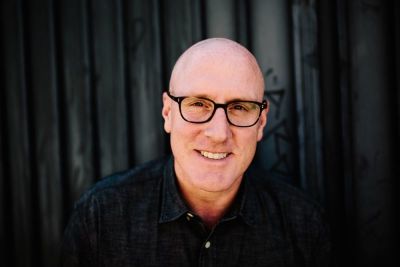Fighting Oppression with Radical Love: Can It Work?

A 14-year-old Christian girl from northern Nigeria, Habiba was abducted by an Islamic terrorist while walking to school. Her kidnapper—a Islamic extremist—went directly to the leader of Habiba's tribe, but not to negotiate for her release. Instead, the abductor negotiated a deal with the tribal leader to effectively buy Habiba for $160 under the customs of Sharia law.
When Habiba's father lobbied for her release, he was told by the tribal leaders that as Christians they had no standing under Sharia law. Habiba was gone from their family for good.
This is an example of why Islamic oppression remains the leading driver of persecution in places like Nigeria, Somalia, Pakistan and many other countries around the world. According to the 2018 Open Doors World Watch List, women like Habiba have been targeted because of their faith and exploited. During the 2018 reporting period, Open Doors chronicled 2,260 cases of rape, sexual assault and forced marriage.
In addition to incidents like these, the extremist Islamic community often has an iron-fist grip on their adherents. A person can face severe backlash for drifting from the radicalism they preach and exploring another belief system. In some countries, such as Malaysia, there are even specific prisons designed to "re-educate" those who decide to follow Jesus, and bring them back to the Muslim fold. Those not imprisoned face shame, boycott, expulsion from society and sometimes violence.
When confronted with these realities, it can be easy for Christians to demonize Muslims and the Muslim world. It is tempting to regard Muslims with suspicion and cultivate an "us versus them" mentality.
And yet, for followers of Christ, that is never an option.
One of the things that makes the Christian faith unique is that we believe everyone was made in the image of God. What does that look like in the real world? For starters, Christians in non-Muslim countries should remember the admonitions to show hospitality to foreigners, along with Christ's exhortation to love our enemies and pray for our persecutors. 1 John 2 reminds believers that enmity can never be justified, because Jesus is the atoning sacrifice for "the whole world"—including our persecutors.
This does not mean that Christians should ignore crimes committed by radical Islamists, nor can they disregard the daily pressure experienced by Christians who live in Muslim cultures. Indeed, cries for justice and charges to care for our brothers and sisters are major themes of the New Testament. But in seeking justice for fellow believers, Christians are also called to radically love their neighbors—a love that does not demonize, but shines the light of Christ for even His persecutors to see.
We must turn our focus to how we can emulate the way Jesus dealt with his primary persecutors: the Roman government and pharisaical elites of the Jewish culture. At every turn, Jesus confronted injustice and spoke the truth—both to government and religious leaders—but He also sat with many of these leaders for supper and pointed toward hope. Today, we are called to do the same. We cannot afford to stay silent about the truth of Islamic oppression, but the answer is not to demonize our Muslim neighbors—it is to invite them into our homes for a meal.
David Curry is the president and CEO at Open Doors USA, a global advocate for persecuted Christians that works in the most restrictive and oppressive countries for Christians.



























